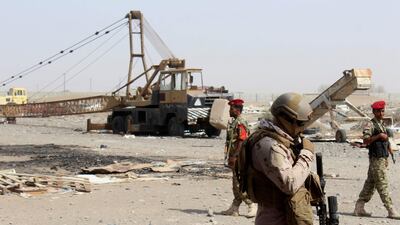Charities have come together to collectively urge Yemen’s factions to put the interests of the struggling population first in “the worst humanitarian crisis in the world”.
The sliver of hope emanating over the ceasefire agreed last month at the crucial port of Hodeidah was largely not felt by the “scared” and “desperate” Yemeni people, a press conference heard. Despite the supposed cessation of hostilities, aid and commercial goods still “are not yet flowing in at the level needed to address the unfolding crisis”, an open letter signed by 14 leading charities also said.
There have been multiple reports of the fighting in and around Hodeidah continuing with both the Houthi rebels and Yemeni government blaming each other. Isabelle Carlsen, operations director at Action Against Hunger, said in a recent two-day visit to the area she heard consistent instances of violence.
More than 14 million people face starvation and some 85,000 children have died from extreme hunger since conflict between Houthi rebels and the Yemeni government escalated in 2015.
According to Ms Carlsen the nutrition situation “continues to be extremely serious and catastrophic with severe limitations on access to potable water and health treatment. She said over two million children are affected by malnutrition, a situation worsened by the destruction of water and medical facilities.
A fire last week exacerbated the already desperate situation by damaging two silos holding food in a tragic incident seemingly started by mortar fire on the outskirts of Hodeidah.
The letter by the charity chiefs said some parents had felt compelled to give their children contaminated food or water, or nothing at all. They also wrote of reports of the elderly having to sell clothes or homes just to get by.
Extreme difficulties facing humanitarian workers in gaining access include the dangers of conflict which often means long journeys over short distances because of the numerous checkpoints and necessary permits.
Awssan Kamal, head of campaigns at Oxfam International, said hunger was stigmatised in a social system where many victims “don’t want to talk about how hungry they are”. The audience also heard that food insecurity was not always linked to frontline conflict – the collapse of the economy and currency were also held responsible. Villages suffering from “acute” malnutrition would often only have bread and tea without milk to survive on.
“We urge all parties to the conflict to remember that the people of Yemen must come first. We urge the public not to look away, not to forget the Yemeni families on the brink of starvation. The people of Yemen cannot wait,” said the letter, which included signatures from the leaders of the British Red Cross, Oxfam GB, Save the Children and Action Against Hunger.
_______________
Read more:
UN envoy to Yemen Martin Griffiths extends Sweden deal implementation timeline
Yemen government says UN committed to ensuring Houthis abide by Sweden deal
UN chief Antonio Guterres says there is ‘wind of hope’ for world’s war zones
UN denies Patrick Cammaert has resigned as head of Hodeidah monitoring team
_______________
“Aid workers are reaching hundreds of thousands of people now with lifelines, but we simply must see greater action by all parties to allow us to reach more Yemenis before it is too late.”
The letter by the charity leaders was also signed by ActionAid UK, Age International, CAFOD, Care International UK, Christian Aid, Concern Worldwide UK, Islamic Relief UK, Plan International UK, Tearfund and World Vision UK.


